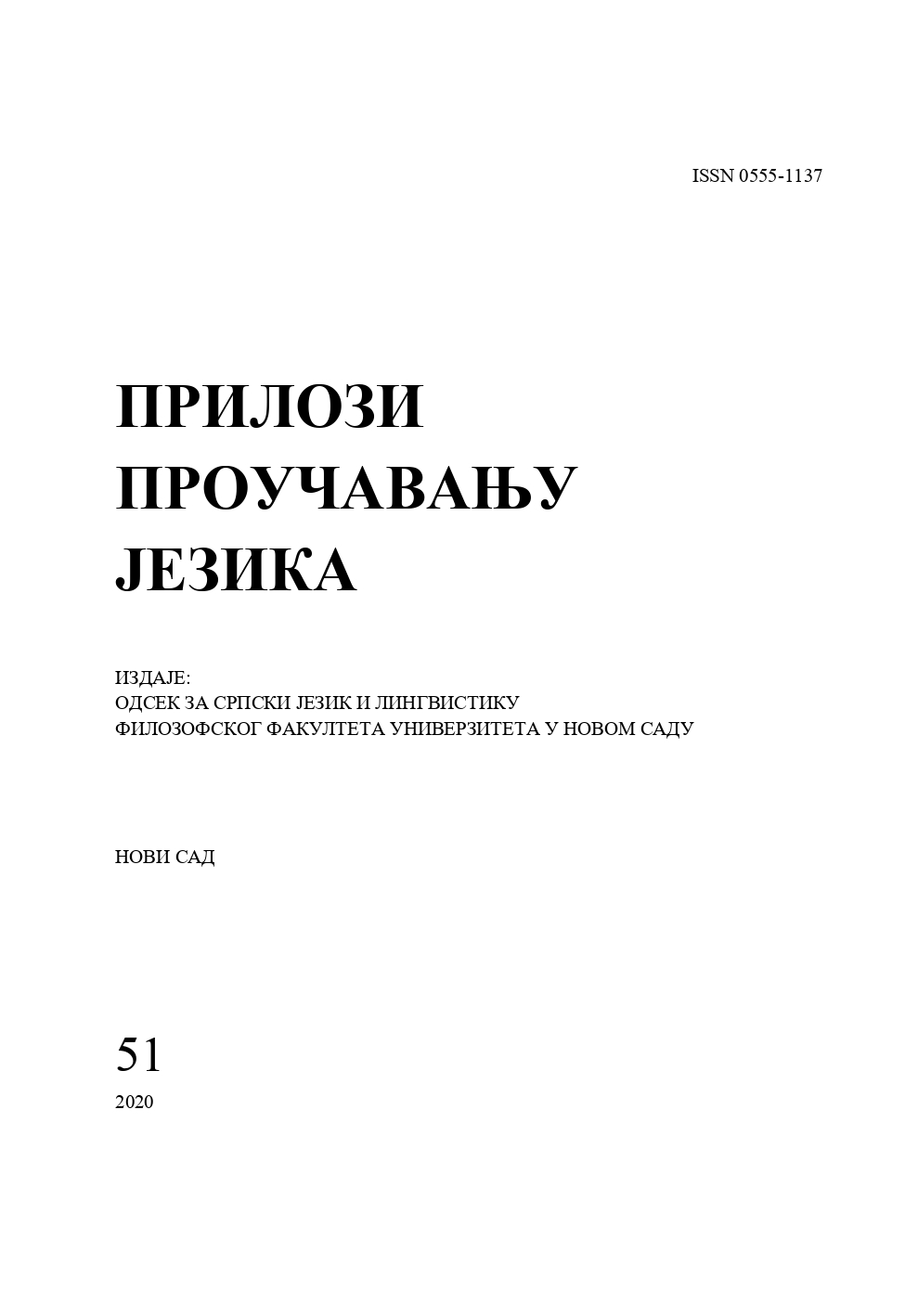Директив и претња исказани независносложеном реченицом са кондиционалним међуклаузалним семантичким односом
Directives and threats expressed as independent coordinated clauses with conditional semantic relations
Author(s): Marina J. ŠaferSubject(s): Language studies, Language and Literature Studies, Theoretical Linguistics, Syntax, Semantics, Pragmatics, South Slavic Languages
Published by: Филозофски факултет, Универзитет у Новом Саду
Keywords: coordinated clause; disjunctive clauses; conjunctive clauses; conditionality; directive; order; prohibition; threat
Summary/Abstract: The paper examines independent coordinated clauses with conditional semantic relations. The second clause is formulated as a speech act of threat, while the first clause, which conditions the enactment of the threat, communicates a directive (order/prohibition). Such an arrangement is predominantly visible in disjunctive (e.g. Турска прети Хафтару: Пустите наше грађане, или ћете постати наша мета → Ако не пустите наше грађане, постаћете наша мета) and conjunctive sentences (e.g. Слушај мали, направи још један проблем и имаћеш посла са мном → Ако направиш још један проблем, имаћеш посла са мном). Examples like these can always be transformed into conditional sentences. The corpus includes select Serbian television shows of different genres (comedy, drama, and crime) as well as Serbian internet portals. Apart from pragmatic functions of the first and second clause, the paper analyses syntactic and semantic traits of these structures: conjunctions, the composition of the first and second clause predicate (different combinations of verb forms, as well as lexical semantics of the verbs that compose the predicates – e.g. the use of aspectual verbs in the first clause), frequent adverbial determiners (e.g. the determiner још једном in the first clause), etc. The most frequent syntactic combination is V1 (Imper.) + V2 (Fut1), but other verb forms are also present, especially in disjunctive sentences (the first clause can use Future 1, while the second often uses a present verb of the imperfective aspect). The clauses are very often joined using the particle иначе, which is expected, considering that its lexical semantics implies a conditional relation (a ако не).
Journal: Прилози проучавању језика
- Issue Year: 2020
- Issue No: 51
- Page Range: 189-206
- Page Count: 18
- Language: Serbian

